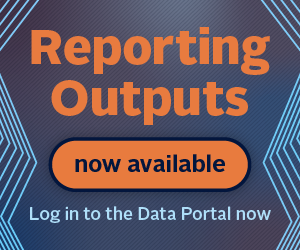The PRI and Ceres today announced that their recently-launched collaborative engagement on deforestation, the Investor Initiative for Sustainable Forests, is open to institutional investors from around the world.
The jointly-managed initiative, led by an advisory committee of eight investors across different geographies, supports investors on their engagement with companies to eliminate deforestation and also address other ESG issues related to soft commodity production, such as poor working conditions, land rights, and impact on indigenous peoples.
“Ceres and the PRI are pleased to open the initiative to global investors interested in engaging with companies on sustainable food production,” said Nathalie Wallace, senior manager investor programs at Ceres.
“Companies that ignore deforestation and human rights concerns in their supply chains are vulnerable to reputational, regulatory and other business risks that can significantly alter the investment portfolios’ risks adjusted return profile.”
The world’s largest meat company, JBS SA, for example, had to shelve its IPO on the New York Stock Exchange, and saw a decline in share price, credit rating, and reputation over concerns that it was purchasing cattle raised on illegally deforested land as well as multiple other scandals.
Moreover, as countries strive to achieve their Nationally Determined Contribution commitments by reducing emissions from land use change, companies and investors with exposure to deforestation-risk commodities may come under greater scrutiny—a point highlighted by CDP Forests’ recent estimate that ongoing deforestation has placed up to US$906 billion of revenue at risk for publicly listed companies.
The objectives of this collaborative engagement are to leverage investor influence to:
- Increase transparency and quality of disclosure related to the source and materiality of focus commodities, and how they move through the supply chain, leveraging emerging and state of the art tools and data sources.
- Achieve full commitment by companies to no deforestation and no human rights violations throughout entire supply chains.
- Increase company uptake of existing and emerging traceability and supplier verification approaches for the focus commodities throughout the supply chain.
- Encourage company participation in collaborative forums to develop standards, policies, certifications, and/or tools to facilitate deforestation-free supply chains for the focus commodities.
Both the PRI and Ceres have worked on palm oil challenges, primarily in Southeast Asia, and are expanding investor engagement efforts to additional commodities, including cattle, soy, and timber/pulp and paper, due to their outsized impact on global deforestation.
“With the recent documented resurgence in Amazon deforestation, and the growing awareness of the link between tropical deforestation and the production of soft commodities such as soy, cattle, and palm oil, this engagement could not be more relevant,” said Kris Douma, who directs ESG engagements at the PRI.
“We are excited about partnering with Ceres on this collaborative engagement, as the ability to leverage our respective networks and avoid duplication of efforts will allow us to collectively achieve a greater impact.”
The collaborative engagement will run for a period of 24 months, with a mid-point assessment of progress being completed after 12 months. Once the engagement comes to an end, there will be a final assessment of progress, culminating in the production of an outcomes document to highlight key takeaways and guide next steps.
The financial support for this partnership is provided by the Gordon and Betty Moore Foundation as part of a conservation and financial markets collaboration among Ceres, World Wildlife Fund and World Business Council for Sustainable Development.











